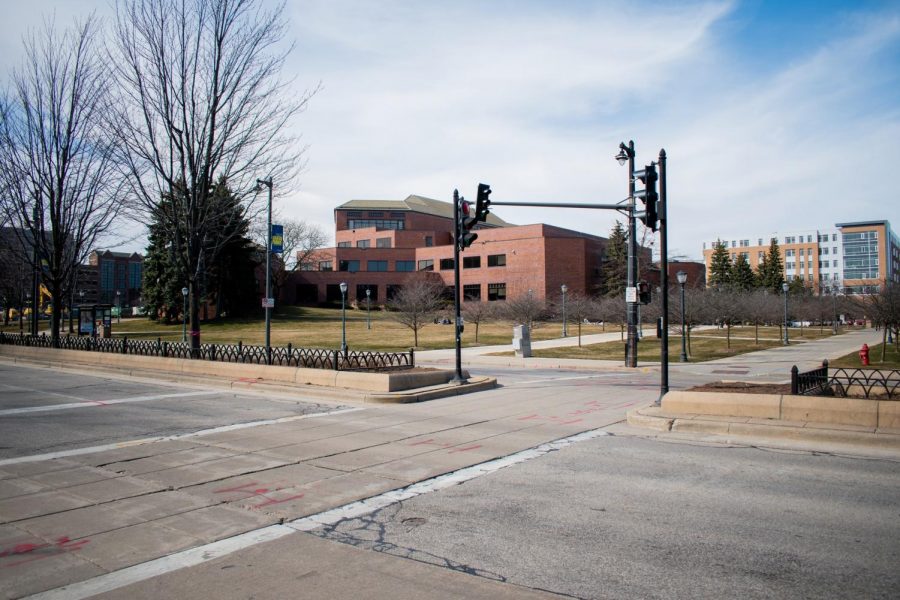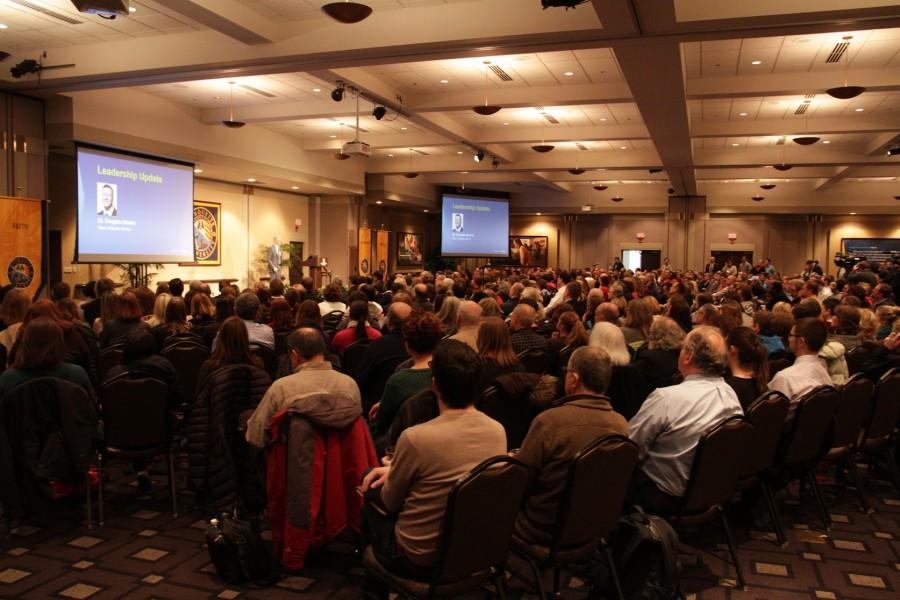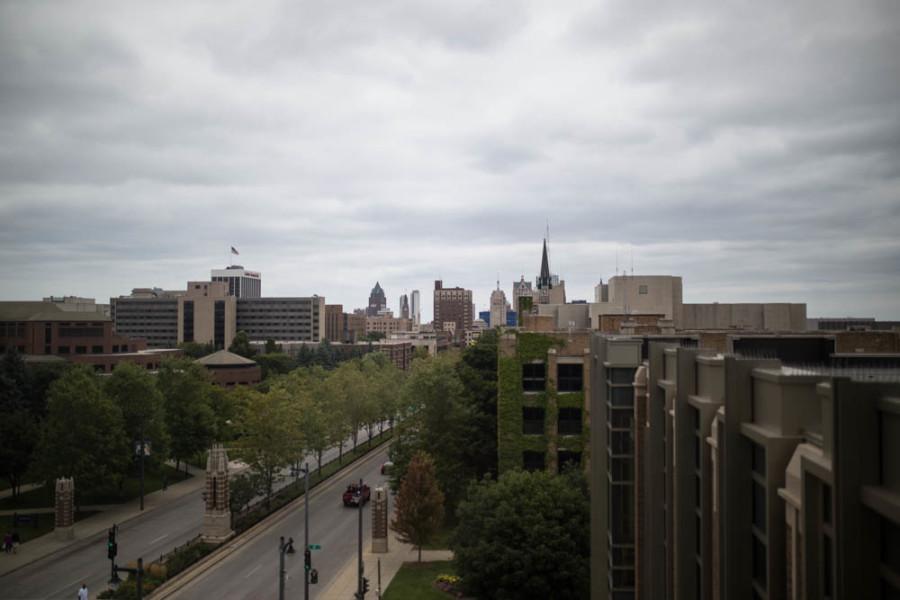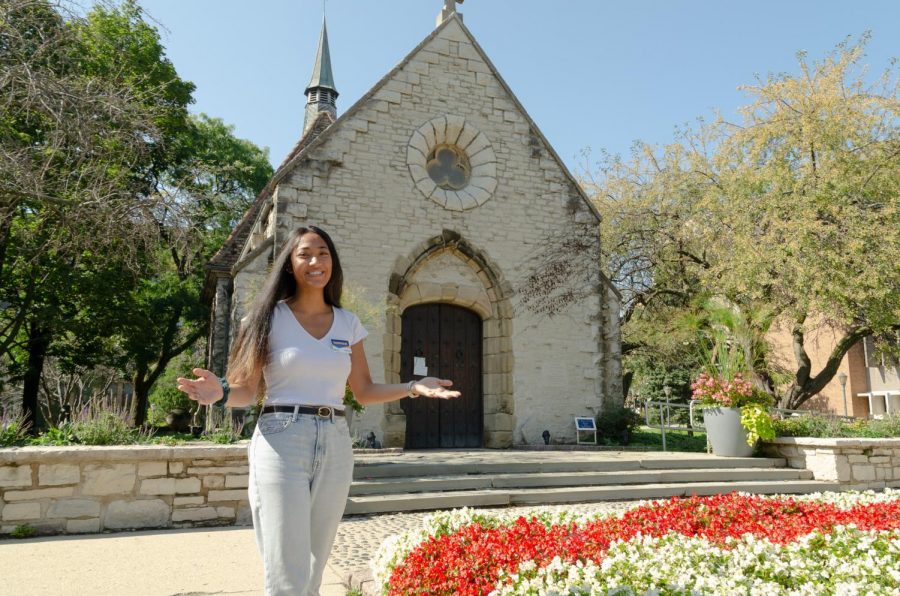It started out with an email.
On March 12, a message sent out to the Marquette community said they were closely monitoring a developing virus that had just been confirmed in Madison, Wisconsin one month prior and seemed to be spreading quickly. The virus in question was the novel coronavirus, also known as COVID-19.
At the time, only 1,663 people in the entire United States had contracted COVID-19 and less than 50 had died. The United States wasn’t leading the world in total cases. Italy and China had both turned into the hot spots for the virus.
The plans for Marquette University at that point in time were to suspend in-person instruction and shift to a temporary virtual format until at least April 10, 2020. Other Wisconsin schools like the, the University of Wisconsin-Madison followed the same suit.
However, these plans were fluid and subject to change.
The first case of COVID-19 in Milwaukee would be found the very next day after the email was sent out.
Not even two weeks later on March 23, the university sent another email to the Marquette community, an email that would change the entirety of the spring semester going forward.
“Remote learning is extended through May 10, the end of the spring semester,” the email said.
Fall registration dates had changed, students who were halfway across the country for spring break still had their belongings in residence halls and to the class of 2020’s dismay, commencement was canceled. There was ashockwave of changes came throughout Marquette’s community as well as the entire world.
By this time, confirmed cases in the United States increased to over 40,000 in all 50 states and 473 people had died. This was an over 2,000% increase in cases and 906% increase in deaths in just ten days.
Now, exactly one year later after the university announced the shift to virtual learning for the remainder of the spring semester things have changed. Residence halls have been sent into quarantine, seats in classrooms are separated by six feet and sports venues are deprived of Marquette fans.
The university is different. Which begs the question: how did we get here?
Immediately, Senior in the College of Arts & Sciences Jake LaFleur had to get home. LaFleur was all the way across the Atlantic Ocean in Europe, where he was studying abroad.
“Coming back to Europe to the United States back where everything was so normalized and then experiencing quarantine and isolation … it was a totally different experience,” LaFleur said in a Marquette Now Interview, March 17.
LaFleur said that a lot of his college experience changed in an instant because of the pandemic, but he never expected to affect his senior year now.
“I was very hopeful for the fall,” LaFleur said. “I never thought it would take away my graduation.”
At the same time, Amanda Zastrow was an English graduate student working toward her dissertation. She also was teaching two courses of Foundations in Literature. The semester started out as normal: In-person classes Tuesday and Thursday from 11:oo a.m. to 1:50 p.m.
Zastrow said she wasn’t concerned until the week Marquette’s spring break began March 8.
“I remember asking my students, ‘where are you going for spring break?’ It wasn’t a big deal at all,” Zastrow said. “There really wasn’t really a lot of indication until that week when it happened.”
Even though universities, like Marquette, issued warnings about traveling to places infected with the coronavirus , millions of people last year and this year traveled for a spring break get-away.
At the same time that she had to adjust her class as an instructor, Zastrow also had to adjust as a student herself. While it was uncertain times, she said the English department provided as much information and guidance as they could.
“We were going to do our best,” Zastrow said. “We were all under a lot of pressure, students included, so as professors and instructors we were not going to make that worse in any way.”
Zastrow, along with other instructors, cut down assignments for the semester. Initially, what was supposed to be a “large research paper” for her classes’ final had turned into a page-and-a-half paper.
“We were focused on making sure that our classes turned out okay,” Zastrow said.
Zastrow said she felt like she had “a dual role” as a student and an instructor. However, she said that the pandemic has hit the student part of her the hardest.
“You come to college expecting a certain experience … a lot of things were just cut short,” Zastrow said. “The pandemic has especially hit … college students in particular … you expect a certain kind of life.”
As the spring semester finished, schools across the country had to make the decision to return to in-person instruction or continue with in-person instruction until safe to do so. Instead, many universities decided to do a hybrid format.
Marquette would announce later in the summer there would be a partially online and partially in-person format Aug. 5.
The campus would have classroom capacities set at 50% and any first-year student living on campus would be required to live on campus inside a residence hall while sophomores could live off campus.
Laura Niezgoda, first–year in the College of Communications, , was one of those required to live on campus, inside of Cobeen Residence Hall.
Niezgoda had already had a bad stroke of luck her senior year of high school when her graduation was not at all what she had waited for.
“I went to my last day of high school without even knowing it was my last day of high school,” Niezgoda said. “I was devastated.”
As if COVID-19 hadn’t affected her life enough, she was then forced to quarantine inside of Cobeen Hall for two weeks during the fall semester.
“It was very frustrating,” Niezgoda said.
Cobeen Hall was not the first or last time a residence hall would be faced with some sort of quarantine. Two weeks before, Schroeder Hall had to undergo a quarantine after a surge in cases, this sentence didn’t make sense at first, add in that they were the first dorm to be put in quarantine and just recently the third floor of O’Donnell Hall would be moved to an alternate site to quarantine.
Niezgoda and her roommate rushed to Target to get supplies for the next two weeks back in September, not knowing if they were already one of the students who were infected inside.
Even after two residence halls had gone into quarantine, cases at Marquette started to rise. On the day Cobeen was put into quarantine, Sept. 26, Marquette was averaging 10 cases a week. By the week of Nov. 14, two weeks after Halloween, the university was averaging 23 cases a week.
Gary Weisling, a sophomore in the College of Communication, hadn’t even finished his first year when the pandemic forced Marquette to go online last spring. When he first got the email from Marquette Today, he said he was actually happy.
“I know all my other friends were also staying home,” Weisling said. “I thought this was just another Swine Flu type thing.”
But for Weisling, the reality of the pandemic began to settle in with the canceling of major sports seasons, like the NBA and MLB’s spring training.
Weisling said it was a “big switch” to go from in-person to online classes in such a short amount of time. However, he said the hardest part of the whole pandemic isn’t adjusting to classes, it’s finding a job now and for the future.
“I remember last semester I was applying for a standard fast-food job and even that was a struggle,” Weisling said.
It’s been a “continuing problem” for Weisling. Internships have been scarce during the pandemic, and he said it’s been struggle ever since the pandemic began.
Even though it’s been a year, Weisling said he felt the effects of this pandemic will not be going away for a substantial amount of time.
“Some people are considering that this might be an ‘endemic,'” he said. “I think society will adapt, but it’ll take more than one year.”
An endemic is a disease or condition that is so prominent that it is found regularly in a certain area, like chickenpox in young children in America, or Malaria in Africa. It is a disease that is present at all times, but at a very low rate.
“I think we’re going to be going through a much better period,” Weisling said. “But I think … this is a very ‘trying’ pandemic.”
As for now, the university has only been averaging 2 cases a week. The university has been setting forth plans now for vaccinations. People over the age of 16 with underlying conditions will now be available for a vaccine at Marquette’s clinical site.
And to the joy of many seniors, commencement may be in-person for the class of 2021.
“I’m really hopeful that the ending can be at least a little bit better than what the last year has been,” LaFleur said. “It (feels) like some sense of normalcy … (is) back in my life a little bit.”
This story was written by Benjamin Wells. He can be reached at [email protected].







